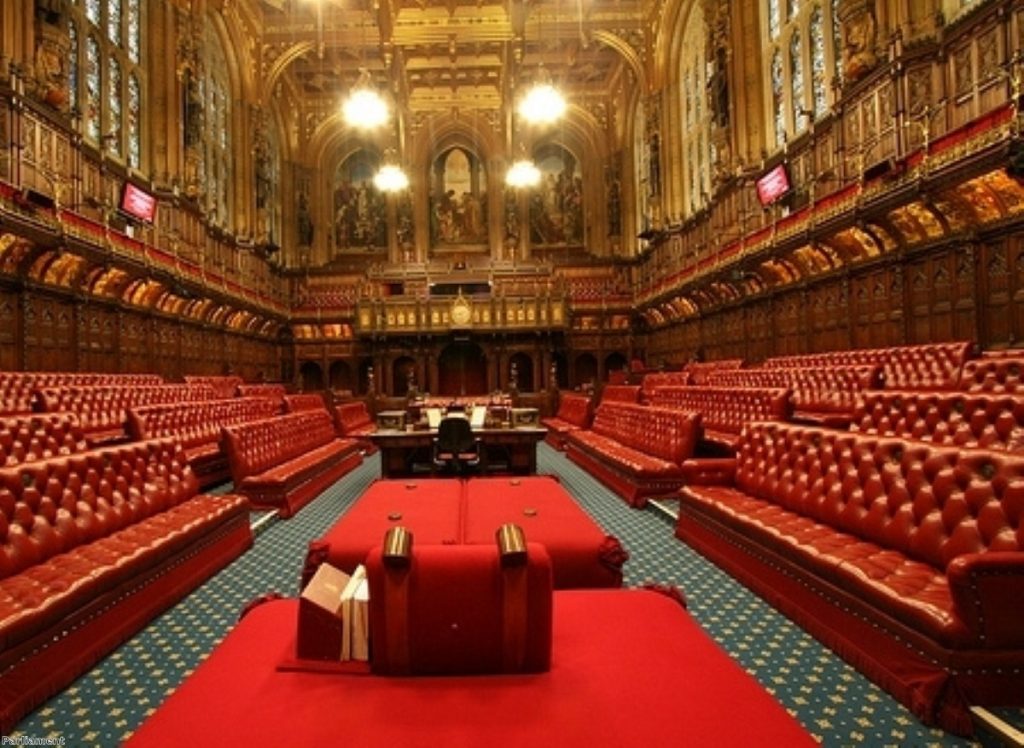Bullish Clegg’s got the wrong approach to Lords reform
By Alex Stevenson Follow @alex__stevenson
Nick Clegg's bullish approach to Lords reform is only going to make a tough ask even tougher.
The deputy prime minister seems in a mood for picking fights. The heady rush of his clash with David Cameron over the eurozone crisis was followed by a jibe in today's Demos speech, heavily previewed in yesterday's papers, against the Tories' "1950s" view of marriage. Clegg has the air of man who is Not Going To Take It Any More.
This new spirit of aggression is especially striking when it comes to the Lords. Peers are the "most potent symbol of a closed society", he argued. They spend their time hiding behind a "veneer of experience", but they don't fool Clegg: he condemns them as being "an affront to the principles of openness which underpin a modern democracy".


A death struggle with the Lords is already likely, which probably explains why the gloves have come off. Clegg is able to quote David Lloyd George, who called the Lords "a body of 500 men chosen at random from amongst the unemployed", because he is already assuming they will not give up without a struggle. "Let there be no doubt: if it comes to a fight, the will of the Commons will prevail," he pledged. Clegg has the Parliament Act up his sleeve, and the backing of the Tories in using it.
The same combativeness is on display when it comes to the Labour party, which may decide to oppose an 80% elected upper House in favour of its preferred 100% elected option. Here the Liberal Democrat leader is scathing, calling the opposition "curiously regressive" on political reform in an interview with the Guardian newspaper. He paints them as a party "playing endless little games for short-term political advantage" and engaging in "monkey business".
There's no doubt Labour has been preoccupied with partisan one-upmanship during its dealings with the coalition's constitutional tinkering. What Clegg cannot admit is the reason for this. They have been forced to do so because the coalition's agenda is brazenly political.
Redrawing the electoral map and cutting the number of MPs to help the Tories. Fighting filibustering Lords to secure a referendum on electoral reform to help the Lib Dems. Establishing fixed-term parliaments to safeguard against the premature collapse of the coalition.
Across all of these issues, Clegg's veneer of high-mindedness has barely covered up the coalition's real agenda. This government's political reform agenda has been driven almost exclusively by party politics. No wonder Labour are doing all they can to resist it.
He may be able to get away with a bit of brinksmanship when brushing up against the PM in the Cabinet room, or bloody-minded peers in the Lords. But on this issue making an enemy of Labour is definitely not the right approach.
Clegg may have got carried away by his own rhetoric. Having got used to the strongarm approach, so necessary to push through the controversial changes achieved thus far, today's speech suggests he is now deploying it to deal with the Lords reform challenge. It could not be less appropriate.
Consensus is critical to achieve lasting constitutional change. Any alterations to the rules of the game which are not seen to be impartial fundamentally undermines their longevity.
Given how uncertain are the chances of the coalition actually succeeding in shaking up the Lords – it's been 100 years and counting, after all – Clegg and co need all the support they can get before taking on the stubborn recalcitrance of the Lords.
The UK's constitution is not a political football, to be tussled over at the despatch box with the opposition. Meaningful reform, a huge prize for the Lib Dems, requires consensus.
But Clegg is approaching this tricky challenge in entirely the wrong way, making winning the coming clash with the Lords much harder. If he has fallen into the habit of expecting conflict with the opposition, the chances of Lords reform actually succeeding need to be downgraded once again.









